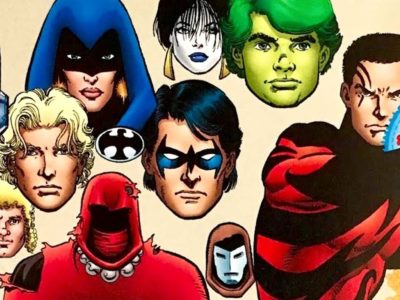
[ad_1]
When the Justice League tried to remodel themselves as a more Avengers-like group in Detroit. they set the stage for the end of the classic JLA.
As the two major superhero teams of Marvel and DC, respectively, the Avengers and the Justice League have always been comparable to one another. Even so, these two super-teams have some key differences. When the Justice League tried to be more like the Avengers, it nearly destroyed the team.
Traditionally, the Justice League has been comprised of DC’s biggest, most important characters: Superman, Batman, Wonder Woman, the Flash and Green Lantern are the first names that come to mind when the Justice League is mentioned. In 1984’s Justice League Annual #2, by Gerry Conway, Chuck Patton, Dave Hunt, Carl Gafford and Ben Oda, the league underwent a massive overhaul. At the time, Earth had just been hit by a massive Martian invasion, and many of the Justice League’s members were unavailable to respond during the crisis. Determined to make the Justice League a full-time fighting force, committed to living and working together, Aquaman disbanded the original league. In its place, Arthur Curry formed a new Justice League, one which seemed more like an Avengers team than a Justice League lineup.
This new Justice League was affectionately referred to as the Justice League Detroit, since their new headquarters was in Detroit, rather than their old orbiting satellite base. Veteran league members Aquaman, Martian Manhunter, Zatanna and Elongated Man all remained on the team full time. Several new members joined as well, such as Gypsy, Vibe, Vixen and Commander Steel. The advantage of this new lineup was that everyone was fully committed to the Justice League, unlike classic members such as Superman or Wonder Woman, who had their own business elsewhere. Moreover, this Justice League was notable for including many lesser-known, B-list heroes, as the Avengers traditionally did.
What usually distinguished the Avengers from the Justice League was that the Avengers would focus on lesser-known heroes such as Scarlet Witch or the Vision, while the Justice League was made up of the most popular DC heroes. Now, however, the Justice League was emulating the Avengers, giving the focus to heroes who didn’t have their own solo titles. Even Aquaman would eventually leave the Justice League Detroit so he could reunite with his wife, Mera. Still, Batman would rejoin the league shortly afterwards. Yet the Justice League Detroit never gained as much clout as their predecessors did. By 1986’s Legends #2, by John Ostrander, Len Wein, John Byrne, Karl Kesel, Tom Ziuko and Steve Haynie, the Justice League Detroit faced a rather humiliating defeat as well.
Darkseid sent a creature called Brimstone down to Earth, who the league was tasked to stop. Yet the Justice League was publicly defeated, shaking the team. Additionally, during “Legends,” the president temporarily banned all superhero activity, leading Martian Manhunter to disband the league for the moment. On top of everything else, Professor Ivo sent his androids to take revenge on the Justice League. This resulted in the deaths of Vibe and Commander Steel, while Gypsy faked her death and decided to live a normal life. Vixen also left the team, after seeing what her vengeful side looked like.
By this point, everyone had left the league except for J’onn J’onzz. Despite their best intentions, the Justice League Detroit didn’t last. Moreover, the ending of the Justice League Detroit meant the end of the original Justice League of America title, which had been going since shortly after the original league’s formation. Even so, the “Legends” crossover did bring together several other heroes, such as Blue Beetle, Black Canary, Guy Gardner and Doctor Fate, all of whom would join Martian Manhunter and Batman to form what would become the Justice League International. This later incarnation of the group was also made up of some lesser-known heroes, but they ended up lasting much longer than the Justice League Detroit. Additionally, the introduction of the new Justice League relaunched the title, beginning Justice League at a new #1. Ultimately, when the Justice League tried to be like the Avengers, the team endured major changes, lasting for years to come.
About The Author
[ad_2]






